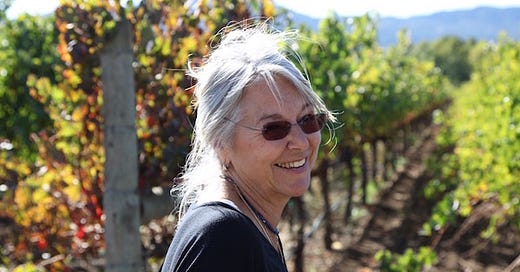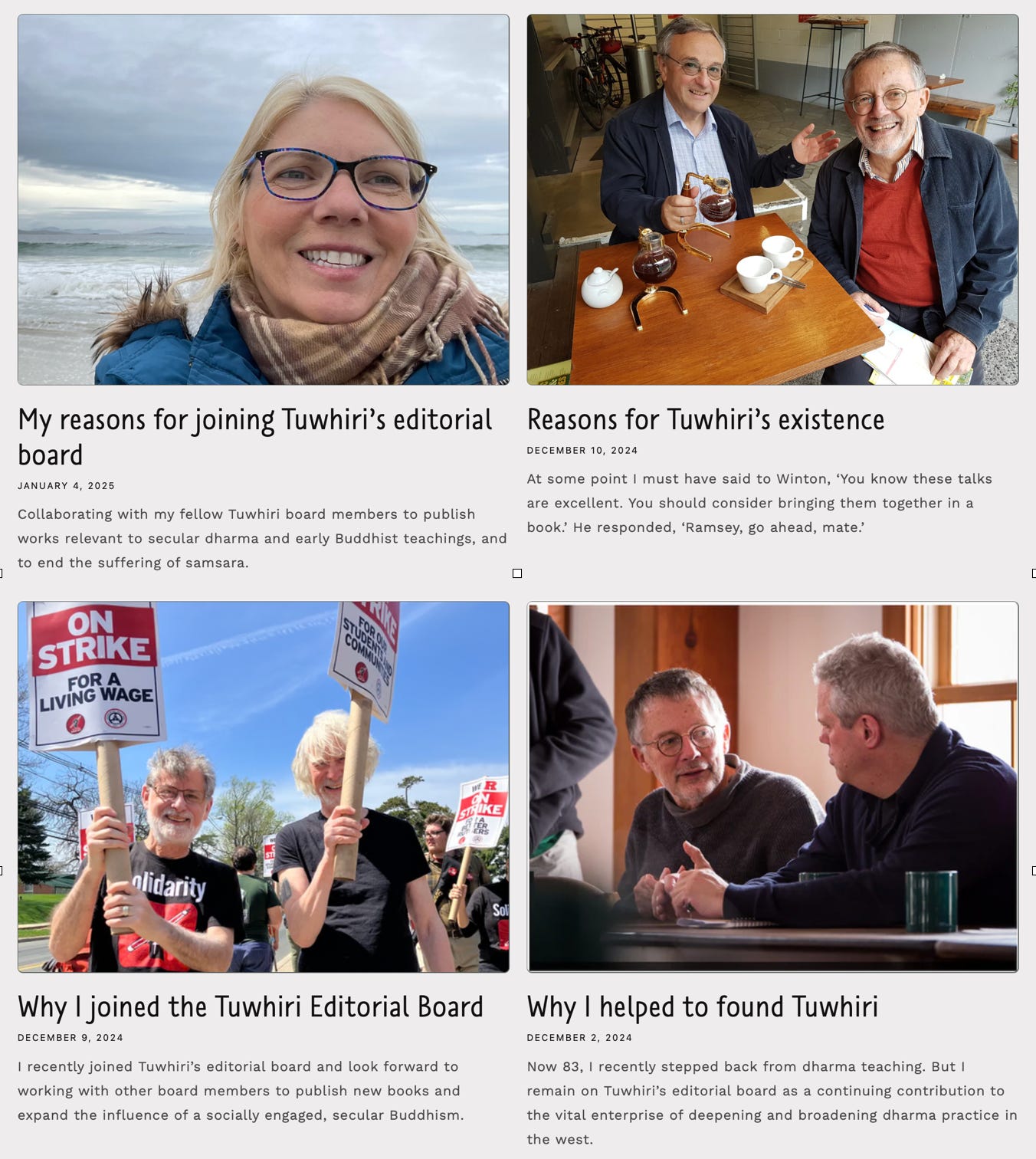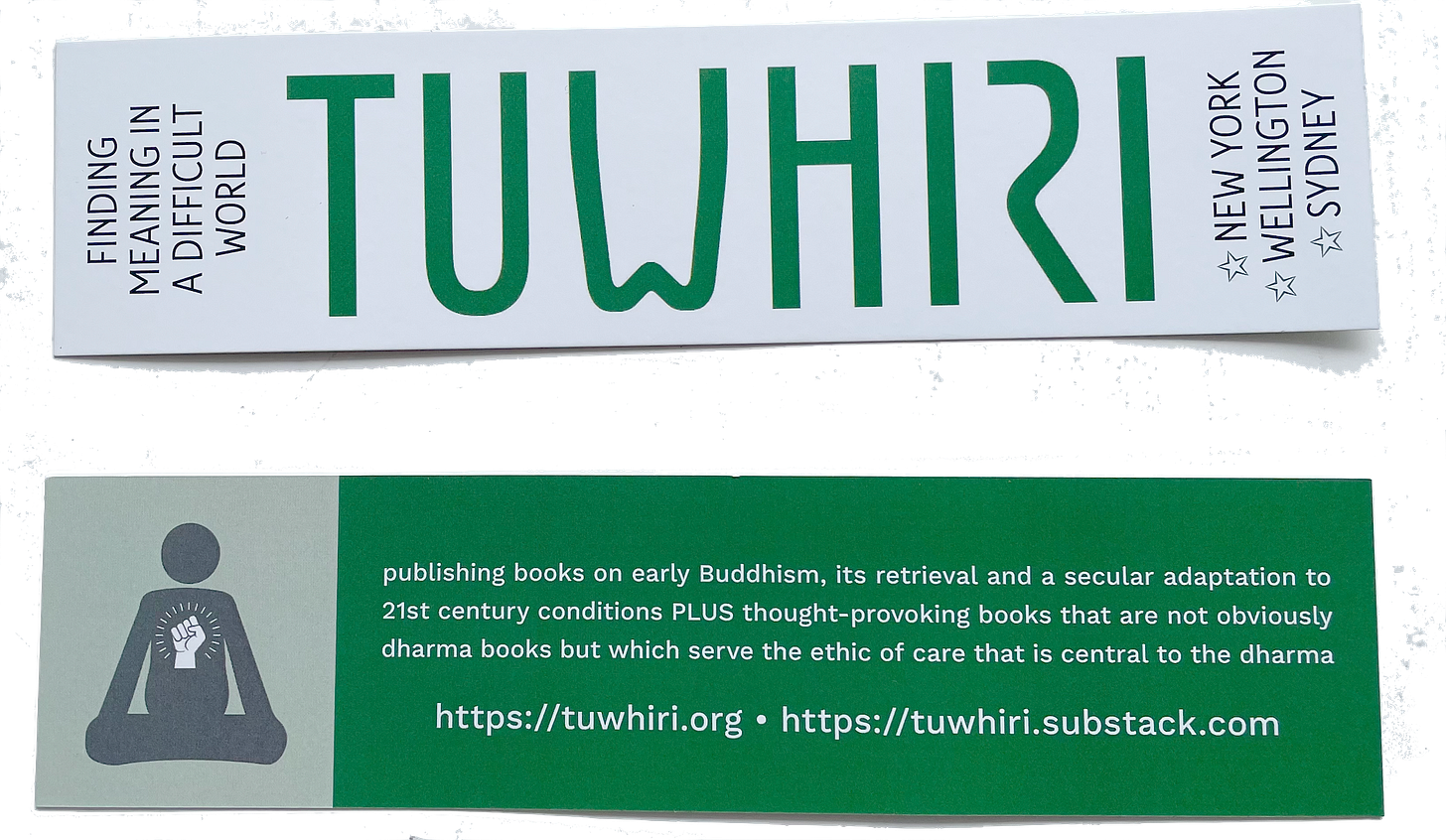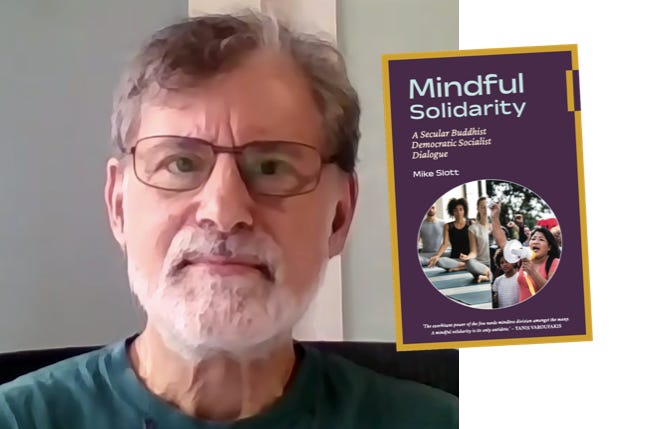by Gay Watson • gaywatson.com
In a way, to attempt to describe emptiness in so few words is frankly bonkers. I should probably have called this ‘A gallop through emptiness’. So why did I do it? Largely, because I think the concept of emptiness is almost unique to Buddhism (except for Taoism), and that it’s at the absolute centre of Buddhist thought. But also, I’m terribly fond of the concept. …
In Buddhism, the word ‘emptiness’ is perhaps unfortunate. If you say ‘emptiness’ to someone, they think it means lack, nothing, negation. However, that’s not what it’s about when used in a Buddhist context. Etymologically, the Pali word suññatā has connotations of a seed bursting open. People have tried other translations, but none really capture it. The worst I think is ‘void’ or ‘the void’, which I find deeply upsetting. Some tried using ‘nothingness’. In my opinion, ‘openness' is probably the nearest conceptually, but it wouldn’t work as a translation. So we are left with ‘emptiness’.
What is this emptiness? When seeking to understand Buddhist terms, I think it’s almost always useful to work with verbs, not nouns. So, we can ask the question, what is something empty of? It is the emptiness of intrinsic independence, as is revealed by the Buddhist concepts of dependent origination or co-arising. This is absolutely the heart of dharma; in fact, the Buddha said that one who sees dependent origination sees the dharma. More recently, the current Dalai Lama referred to dependent origination as the general philosophy of all Buddhist systems.…
Why do I think emptiness is so important? Firstly, because I believe it tells us a great deal about the nature of the mind. It is also hugely helpful in our western world because it presents us with a logic of complementarity. This is very different from the logic of either/or, of contradiction, of the exclusion of the middle. In western culture we have inherited these views without even thinking about it, but the concept of emptiness provides an escape – a middle way – from the conflicting dualities of so much western thought. It allows us to think ‘is’ and ‘is not’ at the same time. Absence and presence become linked, not inevitably opposed. ⁂
This is an excerpt from a dharma talk given to One Mindful Breath, the secular Buddhist community in Wellington, Aotearoa New Zealand, in December 2019. Download the complete talk.
EDITORIAL BOARD MATTERS
Where did Tuwhiri originate?
And who’s on the editorial board?
New on our blog, the four members of Tuwhiri’s editorial board have written about why they’re involved in Tuwhiri, and their hopes for the future of the imprint.
Tuwhiri, though, is not like most publishers. Here’s how Winton Higgins described the way Tuwhiri operates in his post:
For decades now trade publishers (including ones sympathetic to the dharma) have stopped publishing books for their inherent worth or contemporary relevance, and instead only put out books that meet their commercial criterion. They’re wedded to works of any quality that promise high-volume sales in aid of their ‘bottom line’. Most potential books about secular Buddhism would fail to meet that criterion.
To find out more go to the blog⁂
BOOKMARKS
Never lose your place again
Our bookmarks will help you keep your place. If you could use a few, send us an email. ⁂
SECULAR DHARMA TEXTS
All of last year’s offerings
With each of the newsletters that went out in 2024 we offered a transcript of a secular dharma talk, or a text that might have substituted for a secular dharma talk, as a freely downloadable PDF. They were:
Jan · Ramsey Margolis ❖ Understanding the mind with meditation
Feb · Stephen Batchelor ❖ Imagination, creativity and magic
Mar · Jonathan Wood ❖ Letting go of craving: a travelogue
April · Martine Batchelor ❖ What is secular meditation
May · Winton Higgins ❖ The dharma of nostalgia
June · Noah Rasheta & Stephen Batchelor ❖ in conversation
June · Stephen Batchelor ❖ Meditation originates and culminates in the everyday sublime
July · Anna Markey ❖ The teacher on my left shoulder
Aug · Bill Gayner ❖ Emotion-focused mindfulness therapy and secular Buddhism
Sept · Cathryn Jacob ❖ What is ELSA + The eightfold path as a middle way
Oct · Winton Higgins/Ramsey Margolis ❖ What is at the heart of secular Buddhism?
Nov · Anna Markey ❖ The middle way and dead ends
Dec · Bernat Font ❖ What we forget about mindfulness
To download these texts, go to the News from Tuwhiri home page and navigate to the newsletter with the text you want to read. ⁂
ONLINE BOOK READING GROUPS
Appreciating the dharma in the company of others
What is this? reading group starts Sunday 16 February. The group ends with a Q+A session with co-author Martine Batchelor on 24 May. Meetings start at these times:
7am · Western Australia (& Bali)
8am · Japan (& Korea)
9.30am · South Australia
10am · New South Wales & Queensland
12 noon · Aotearoa New Zealand
1pm · Hawaii
3pm · US/Canada west coast
5pm · US/Canada central
6pm · US/Canada east coast
➡︎ Get more information here – and be sure to reserve your place. ⁂
Revamp reading group starts Sunday 9 March. The group ends with a Q+A session with author Winton Higgins. Meetings start at these times:
8am · Hawaii
11am · US/Canada west coast
1pm · US/Canada central
2pm · US/Canada east coast
6pm · London
7pm · Europe
➡︎ Get more information here – and be sure to reserve your place. ⁂
Mindful Solidarity reading group starts Sunday 27 April. The group ends with a Q+A session with author Mike Slott. Meetings start at these times:
8am · Hawaii
11am · US/Canada west coast
1pm · US/Canada central
2pm · US/Canada east coast
6pm · London
7pm · Europe
➡︎ Get more information here – and be sure to reserve your place. ⁂
How you can be helpful
If you enjoy this newsletter, here are four things you can do to help:
1 ❖ Share it with someone you know
2 ❖ Press the ❤️ icon at the bottom
3 ❖ Subscribe now – if you haven’t already
4 ❖ Choose to pay for your sub – and get 15% off the books in our online store ⁂
We’re so, so grateful to you
When you read this newsletter, buy a book, let others know about Tuwhiri, or decide you’re going to pay for your newsletter, know that you’re part of the community which helps us to publish innovative secular dharma books. ⁂
Ngā manaakitanga
Tuwhiri’s editorial board









